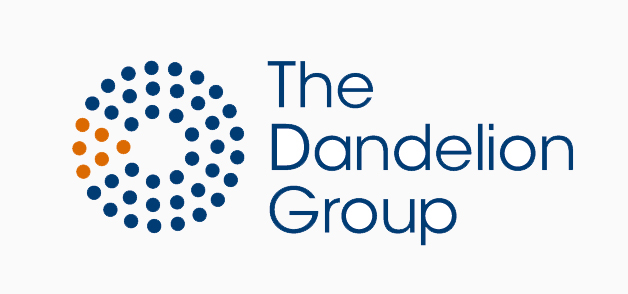Climbing the glass cliff
Getting ahead is easier said than done. Ngozi Okonjo-Iweala, Hillary Clinton and Angela Merkel can tell you a thing or two about it. What lessons can women draw from female leaders to shut up critics?
Carpe crisem
Who are better leaders - men or women? While the mixed results of studies indicate that the world is not blue and pink, the public clearly perceive men as more suitable for powerful positions. The Reykjavik Index looked at the Group of Seven (i.e. Canada, France, Germany, Italy, Japan, the United Kingdom and the United States) plus India, Kenya and Nigeria. No country scores 100 points, which would mean zero prejudices. The results confirm the uphill battle for women.
The future will not necessarily be brighter. According to the Index, the views of young men are becoming less progressive and younger people in general deem women less fit to lead than older people in the G7. The pandemic could, however, create a break in the clouds.
Out of crisis comes opportunity, particularly for women. Michelle K. Ryan and S. Alexander Haslam coined the term “glass cliff” in 2007 for the phenomenon that companies appoint more female leaders after a period of turmoil. Kim Campbell (former Prime Minister of Canada, elected after her party’s historic defeat), Dilma Roussef (former President of Brazil sworn in after a corruption scandal), Theresa May (former UK Prime Minister nominated after the Brexit-referendum) are examples from the political world. The University of Utah confirmed the glass cliff effect in 2013 and found that minorities are asked as well to lead when the firm is weak. Carpe crisem, make the most of the crisis but watch out for invisible risks.
Ngozi Okonjo-Iweala mastered the challenge as a young woman. When she got selected for a problematic World Bank project in Rwanda, she saw usually ambitious men passing the hot potato because they did not want to jeopardise their “glamorous” résumé. She nonetheless took on the challenge and went on to a 25-year career in Washington DC and becoming Finance Minister of Nigeria. In February 2021, the General Counsel selected Okonjo-Iweala as the first woman and first African to head the World Trade Organisation.
Which of the six lessons did you find the most useful?
Non ducor duco
Looking for powerful roles is the first step to climb the glass cliff. Every time you reach a new level, remember the higher up you go, the harder you (can) fall. To stay on track, we have to evolve as well, but that does not mean that one has to behave completely differently.
Although a masculine image of leadership dominates public perception, women will not succeed acting more “like a man” when climbing ranks. Hillary Clinton was called distant and cold and there are plenty of other examples of female US leaders held back by sexism. Kamala Harris received compliments for being assertive in the courtroom that turned into accusations of being hysterical when she joined the Senate. A solution to gender bias lies in the latin proverb: No ducor duco. I am not led, I lead.
Certain characteristics make a person appear more powerful. In 2018, Pew Research identified the most important leadership competencies to US citizens and took a closer look. The ranking differs when you look at the sector (business vs politics) and gender. Amongst those who believe in different leadership styles, women have the edge on many traits. Women who show that they take risks come across as odd. Women who appear as credible, committed and compassionate can sharpen their profile as leaders.
Clinton’s team seemed to have thought similarly when they produced this promo clip in 2015. How would yours look like?
Unite et impera
Reaching the top does not mean that you can lean back. Sexism can range from obvious wolf-whistling, as experienced by former Minister Cecile Duflot when presenting a report in the French Parliament, to inappropriate interview questions collected on Glassdoor, for instance “Who is going to watch the kids while you’re at work?” Willingly or not, such statements undermine your authority. Even if you are not a fervent feminist, make your environment more inclusive.
This can mean rescinding old-fashioned rules. German women only obtained the right to vote in 1918. At the 100th anniversary of this milestone, Angela Merkel shared an anecdote (in German) that made the audience shake their head in disbelief. When she became Chancellor, she wondered why she had never seen pregnant staff at the official seat in Berlin. She learned that ministries sent pregnant women to dedicated houses (“Mutterhaus”) because they could, arguably, no longer perform their tasks well. The rule is history and the staff empowered.
Gender barriers in the workplace divide and the pandemic has intensified challenges. McKinsey warns companies of losing skilled female leaders and sees them at a critical crossroads. Their report recommends to make performance criteria more reasonable, organise trainings for staff on unconscious biases, advocate mental health counselling and strengthen employee communication. Leaders are well advised to create a more “flexible and empathetic workplace”.
Three tips for women to climb the glass cliff
Look for roles with more responsibility during a period of crisis.
Show that you are a credible, committed and compassionate leader.
Empower colleagues through a more flexible, inclusive environment.
- written by Benjamin Wilhelm, benjamin[at]thedandeliongroup.eu
Learn the techniques. Boost your confidence. Make your point.
Click here to unlock your potential.

